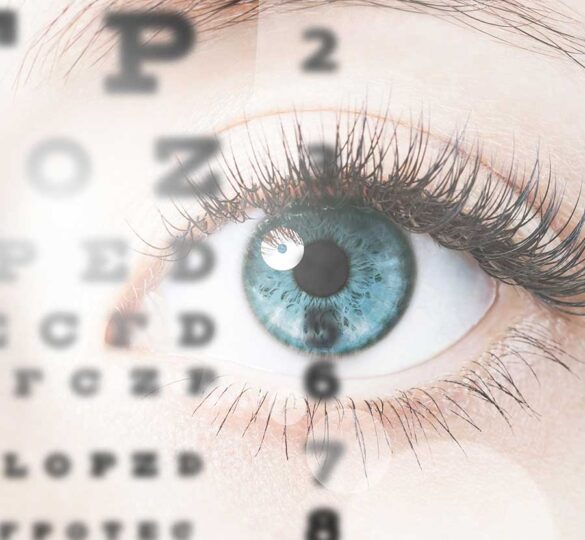Glaucoma y capacidad de lectura
¿Qué se puede hacer para facilitar la lectura a las personas con glaucoma? Puedes empezar probando algunas cosas por tu cuenta.

Generalmente, el glaucoma se describe como una enfermedad que afecta la visión periférica. Por lo tanto, no debería tener ningún efecto sobre la lectura, la principal tarea de la visión central, ¿verdad?
De hecho, el glaucoma sí afecta la lectura. ¿Por qué? En primer lugar, mientras que el glaucoma afecta la visión periférica, también afecta la visión central. Los pacientes que tienen glaucoma moderado o grave suelen describir que ven a través de una neblina que se extiende a su visión central. Debido a esta neblina, las personas con glaucoma reconocen menos letras de un vistazo. Por lo tanto, deben mirar el texto más veces para terminar de leer un fragmento. El resultado es una lectura más lenta y una dificultad particular con las palabras más largas.
En segundo lugar, la lectura también participa la visión periférica media. Por ejemplo, utilizamos nuestro campo de visión cuando pasamos del final de una línea al inicio de una nueva línea de texto, o cuando buscamos información en una página para encontrar los detalles específicos que deseamos conocer. Los pacientes con glaucoma tienen particular dificultad con estos aspectos de la lectura.
Aunque los pacientes que tienen glaucoma pueden leer, les resulta más difícil. Durante largos periodos de tiempo, las personas con glaucoma más severo se cansan, y su velocidad de lectura disminuye. También comprenden menos lo que leen. Debido a todas estas dificultades, las personas con glaucoma leen con menos frecuencia. Como resultado de ello, pueden volverse menos independientes y más desconectadas del mundo.
Por lo tanto, mientras continuamos luchando por tratamientos que recobren la visión, ¿qué se puede hacer para que les resulte más fácil leer a las personas que tienen glaucoma? Puede comenzar por probar algunas cosas por su cuenta.
- Aumente el tamaño del texto al trabajar en la computadora u otros dispositivos electrónicos.
- Utilice iluminación puntual al leer un libro.
- Considere leer en una tableta u otro dispositivo que permita invertir la polaridad (letras blancas sobre un fondo negro, en lugar de letras negras sobre un fondo blanco).
Estos consejos no son tan fáciles de perfeccionar por su cuenta. Por lo tanto, si tiene problemas para leer y no ha consultado a un especialista en rehabilitación de la vista, pídale a su médico que lo derive. Estos profesionales se especializan en ayudarlo a vivir de la manera más funcional y independiente posible con la visión que tiene.
—
Artículo del Dr. Pradeep Y. Ramulu.

Pradeep Y. Ramulu, MD, PhD
Dr. Pradeep Ramulu is Professor of Ophthalmology at Johns Hopkins, and Chief of the Glaucoma Division at the Johns Hopkins Wilmer Eye Institute. His research is focused on how visual damage from glaucoma and other diseases affect the individual, and how we can maximize independence and safety for patients who have lost vision from glaucoma.